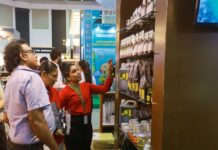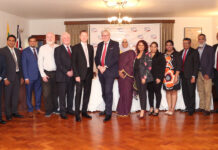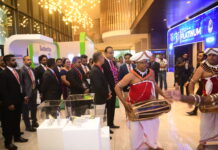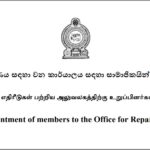World Milk Day was established in 2001 by the Food and Agriculture Organisation of the United Nations to recognize the importance of milk as a global food, and to celebrate the dairy sector.
Every year since, the benefits of milk and dairy products have been actively promoted around the world, including how dairy supports the livelihoods of one billion people.
To commemorate World Milk Day 2021, the All Island Dairy Association (AIDA) in collaboration with the Market-Oriented Dairy (MOD) Project hosted a webinar to celebrate the dairy sector’s contribution to the national economy and rural livelihood development showcasing innovations and initiatives carried out to develop the sector.
Key industry stakeholders across the value chain including members of the dairy farming community at grassroots level participated in the session sharing valuable insights providing pathways to further improve the sector.
Opening the sessions, Nishantha Jayasooriya, President of AIDA and CEO of Richlife Dairy Pvt Ltd, stated that the World Milk Day signifies the importance of milk and its contribution to the national economy.
Mr. Jayasooriya said, “The role dairy plays in society is not only as a nutrition provider but also as a creator of livelihoods for generations and uplifting micro economies in the country. Yet, today, the local dairy production fulfils only about 40% of the demand for milk consumption in the island, creating tremendous opportunities in the development of the dairy sector in Sri Lanka”.
Highlighting the vital role of the dairy industry, Mr. Jayasooriya added, “I hope this webinar creates further awareness of the growth opportunities and encourages investors the stakeholders to concentrate and consolidate actions to develop the industry”.
The Chief Guest Dr. (Mrs) Hemali Kothalawela, Director General of the Department of Animal Production and Health (DAPH), stated that milk has traditionally played an important nutritional and cultural role. At present, nearly 85% of the dairy farmers are at a subsistence level of production with about 60% of these farmers having less than five animals. Approximately 10% of the national production is contributed to the large farms. Currently, the dairy industry of Sri Lanka is in a transitional stage.
Dr. Kothalawala also stated, “To work towards the national policy of self-sufficiency with the annual growth in demand, our emphasis is to convert the small-scale livelihood dairy farmers with potential to a more profit oriented medium-scale enterprises as well as further facilitate development of mega farms”.
In addition, Dr. Kothalawela stated that leveraging digital technology to deliver extension services, providing required incentives and inputs, development of infrastructure, focus on quality assurance and providing required support to the smooth functioning of the value chain are key to the planned strategy.
The distinguished panel consisted of Binesh Pananwala, Vice President of AIDA, CEO Watawala Dairy Ltd; D. M. Auward, DGM-Milk Procurement Milco Pvt Ltd; Akmal Wickramanayke, Managing Director Pelwatte Dairy Pvt Ltd; Dr. Susantha Mallawa Arachchi, Director-Agro Farms, General Manager Animal Health Hayleys Agriculture Holdings Limited; Gamini Rajapaksha, Managing Director Hypromac Engineering Services; Dr. Keerthi Gunasekara, Director, Quadragen VetHealth Pvt Ltd.
The panelists shared new approaches and new technologies introduced to improve quality, milk production.
Facilitated by the Market-Oriented Dairy project, two progressive members of the dairy farming community also joined the discussion providing a unique and insightful message to the potential of the dairy industry.
Paskaran Vakisan, a young, commercial fodder entrepreneur from Nedunkerny who cultivates his own fodder, has helped build the capacity of several out growers in the community and supplies the produce to a MOD developed silage entrepreneur in Killinochchi who in turn supplies about 100,000kg of silage a month.
Punchi Bandara, a dairy farmer from Girandurukotte, shared his experience of implementing the basic best practices using his own resources such as providing 24-hour milk, growing green fodder, feeding according to Total Mixed Ration, adopting transition cow management and practicing better calf management can increase daily yield from 25 liters to 100 liters in less than one year.
Both the commercial fodder cultivator and the dairy farmer stated that the success of their enterprise and secret to increasing milk is gaining knowledge of new techniques and technologies and committing to apply these best practices.
The webinar was moderated by Asoka Bandara, Vice President of AIDA, Group Head of Corporate Affairs & Strategy, Maliban Group and concluded by Chithral Munaweera, General Manager and Consultant to AIDA.












